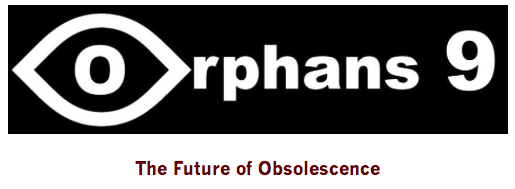Orphan Film Symposium 2014
In the next few posts we will be recapping some of the exciting developments for The Media Ecology Project in the year since we held our opening symposium at Dartmouth College. This is the third of five installments focusing on conference presentations about MEP in 2013-2014..
The 9th Orphan Film Symposium, hosted by NYU Cinema Studies, the EYE Institute, and the University of Amsterdam focused on The Future of Obsolescence, which presented a perfect opportunity to present MEP to an international community of archivists, academics, and artists from more than 30 countries. Orphanistas are committed to the discovery and preservation of what might otherwise be shunned and ignored historical media.
Mark Cooper (University of South Carolina), Karen Cariani (WGBH), and Mark Williams(Dartmouth) presented on a panel entitled “New Research Networks for Obsolete Media,” which was moderated by Scott Curtis (Northwestern University). The panel had been proposed as one of the initiatives of the MEP Symposium at Dartmouth in May, 2013.
This was the first Orphans Symposium hosted outside the U.S., and featured many memorable events and screenings, including a keynote address entitled “The Poetics of Obsolesence” by Thomas Elsaesser (University of Amsterdam).
Thanks as always to Orphans founder and congenial spirit Dan Streible (NYU), part of the MEP Symposium, who deserves a MacArthur Fellowship for his inestimable work to transform a bad object–orphaned media–into a powerful and inspired international movement. We are also extremely grateful to our gracious host: head curator at EYE, Giovanna Fossati, who is Professor of Film Heritage and Digital Film Culture at University of Amsterdam.
FYI, here a post about The Eye Institute’s commitment to leadership in digitisation and restoration of film history.
Thanks to Mac Simonson for his help with this post!

